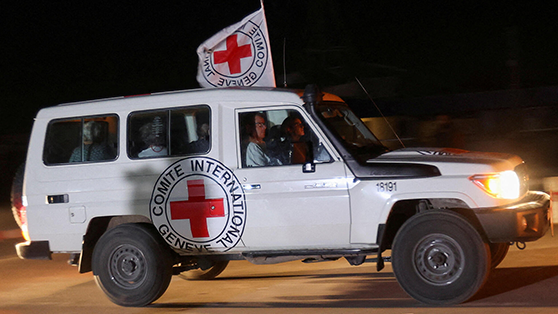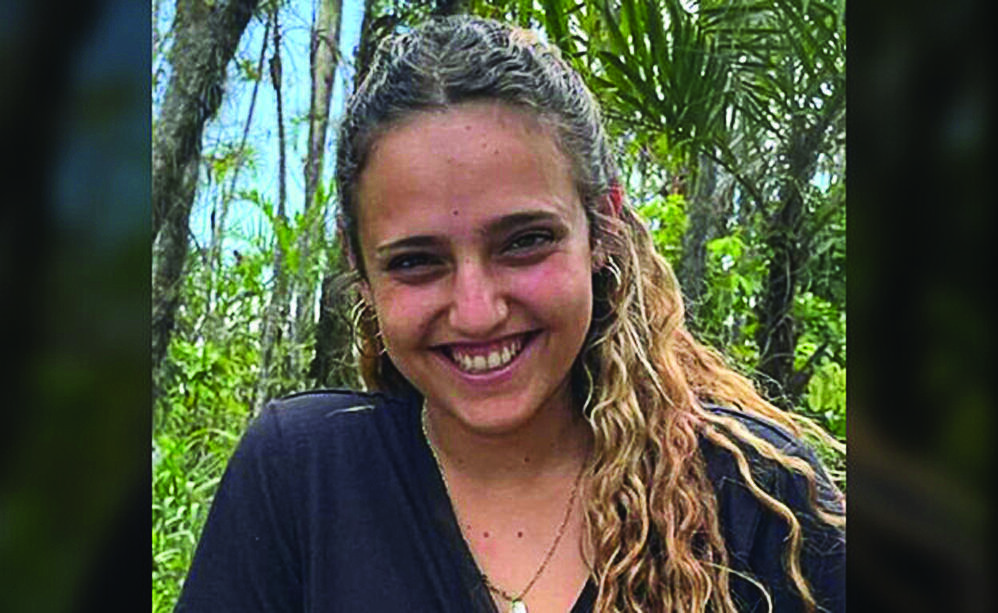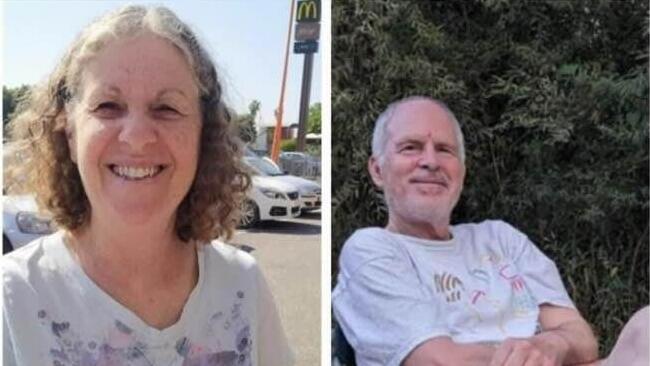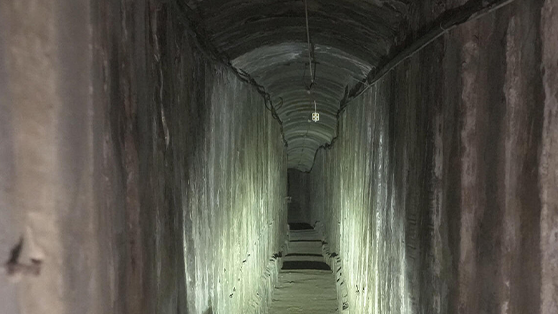Getting your Trinity Audio player ready...
Hamas sedated hostages before their release back to Israel, which was broadcast worldwide, in order to "make them appear happy," a Health Ministry official said on Tuesday.
More stories:
Dr. Hagar Mizrahi, the head of the ministry's General Medicine Division, told a Knesset Health Committee hearing that the terrorist organization gave the hostages vitamins and mood stabilizers "to make them appear happy" in front of the cameras as they made their way back home from captivity.
4 View gallery


Hostages returned to Israel in Red Cross vehicle
(Photo: REUTERS /Ibraheem Abu Mustafa)
Dr. Mizrahi also described “war crimes related to lack of proper medical care” and “cases related to feeding” that she said she was requested not to elaborate on by security officials due to concerns for the safety of hostages still held in Gaza.
During the hearing on the ministry’s actions in treating returned captives and addressing missing persons, family members of both released captives and those still in captivity shared their experiences.
"Three hours from here, a Holocaust is unfolding. Women who were abused are not receiving treatment," said Yizhar Lifshitz, whose 85-year-old mother Yocheved was released from Gaza while his father Oded, also 85, is still held hostage by terrorists.
He warned of the deteriorating condition of the captives and called for decision-makers to take action. "This is a mega event, don't forget anyone. Start treating it as a mega event. Even in budgets, start allocating tens of billions in that direction, because those are the sums," he said.
Yarden Gonen, sister of Romi Gonen who was kidnapped on October 7 from the Supernova desert rave, said, "We have testimonies that my sister is alive but injured and neglected. I think about how every day she's there, she lives with the knowledge that her soulmate is being murdered before her eyes. Has anyone lost their soulmate right in front of them? How can we leave them there? I have no words to emphasize how much we cannot contain this anymore."
Professor Ronit Endevelt, head of the Nutrition Department at the Health Ministry said, "Children who were with their families had a better nutritional status. Those who were alone were in a worse condition."
Many hostages reported harsh hunger conditions in captivity, with some shedding over 15 kilograms during their time in Gaza.
Health Committee Chairman and Knesset member Yoni Mishraki of Shas told the meeting that the ministry should publish a detailed report to global health organizations regarding the medical findings discovered after the captives' return.
"I've been coming to the Knesset for five weeks now, a three-hour journey from my home, to ensure this is on the agenda. I wouldn't be here if I trusted them, and I don't trust you, because my father is still in Gaza," Shir Siegal, the daughter of Aviva, who returned from captivity, and Keith who still held in Gaza, said. "I want to demand from everyone here that every morning you wake up, do everything you can to bring them back home."
“My mother heard testimonies that I can't bear to hear. I can't listen to her talk about how they were beaten, tortured, not given medication or medical assistance. They don't give them food or water. I can't hear my mother describe what's happening there, and I need you to be my voice, my mind, because I can't function anymore. It's unreasonable that my mother returns to Israel and the only thing she cares about is that my father is still there. She told me last night, 'How can I function knowing what's happening there and my husband is still there?'"
Esther Buchshtab, whose son Yagev is in Gaza, also asserts that the hostages can not be left in Gaza any longer. "As a family, we are experiencing great distress and a feeling of helplessness. We understand that the return of the captives is a tough situation. The things heard in the media are not what we know from the captives. Gradually, more and more is revealed, and the situation that is revealed is very difficult," she said.
“I want to join the outcry here that the most important thing is to bring back the captives now and under any condition. They can't be left there. Above all, everyone needs to be brought back together. We hear from the captives that there is no appropriate health care; the treatment is random. If there's a bag of painkillers, they take it even for blood pressure because there's nothing suitable," Buchshtab said.
“People were kidnapped from their homes and surroundings, not according to any protocol. I understand that during the process of this plan, the captives felt they were about to be released, and when the deal fell apart stopped, their conditions worsened," she added.
Meirav Mor Raviv, whose family returned from captivity, said: "I did hear detailed testimonies down to the smallest detail. People returned to a reality they did not recognize. My aunt said, 'How nice to return home.' She didn't know she had no home. Her son was murdered and her husband was kidnapped.”






